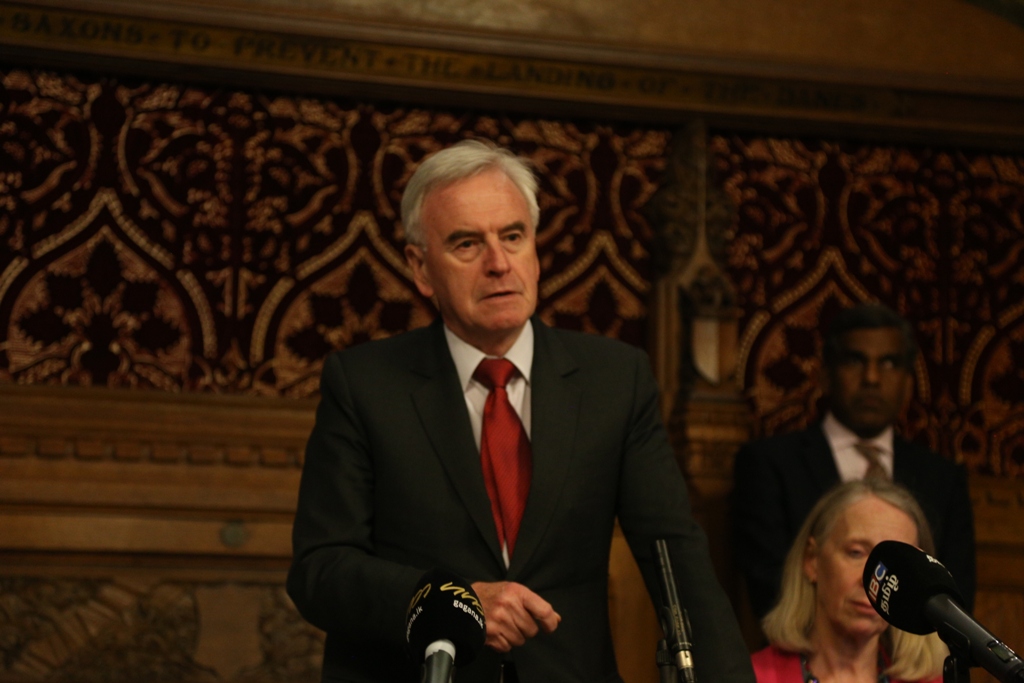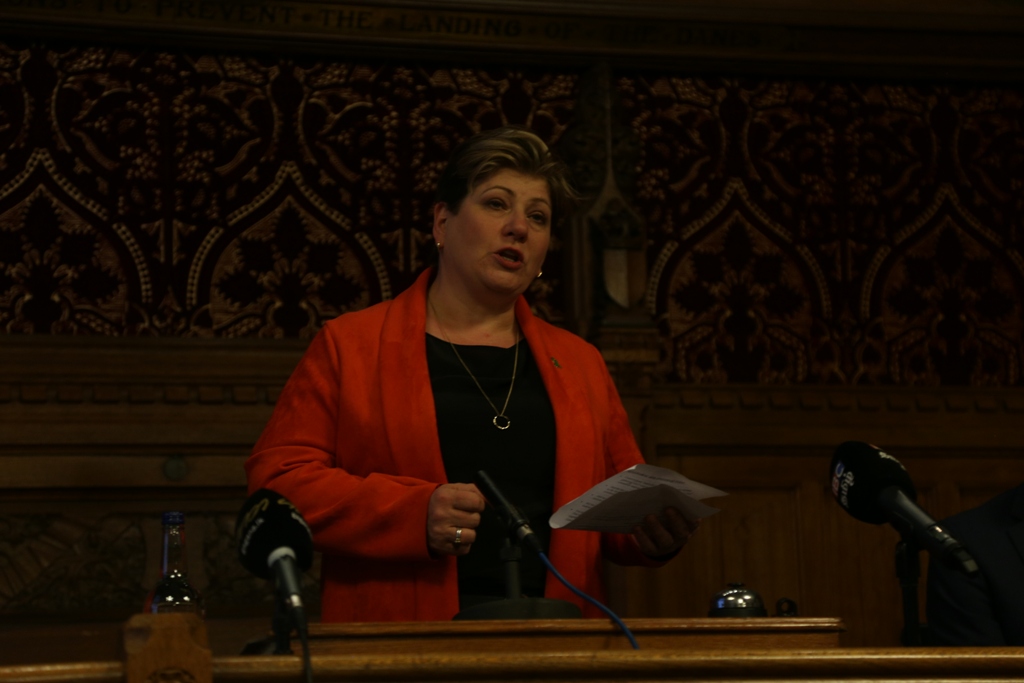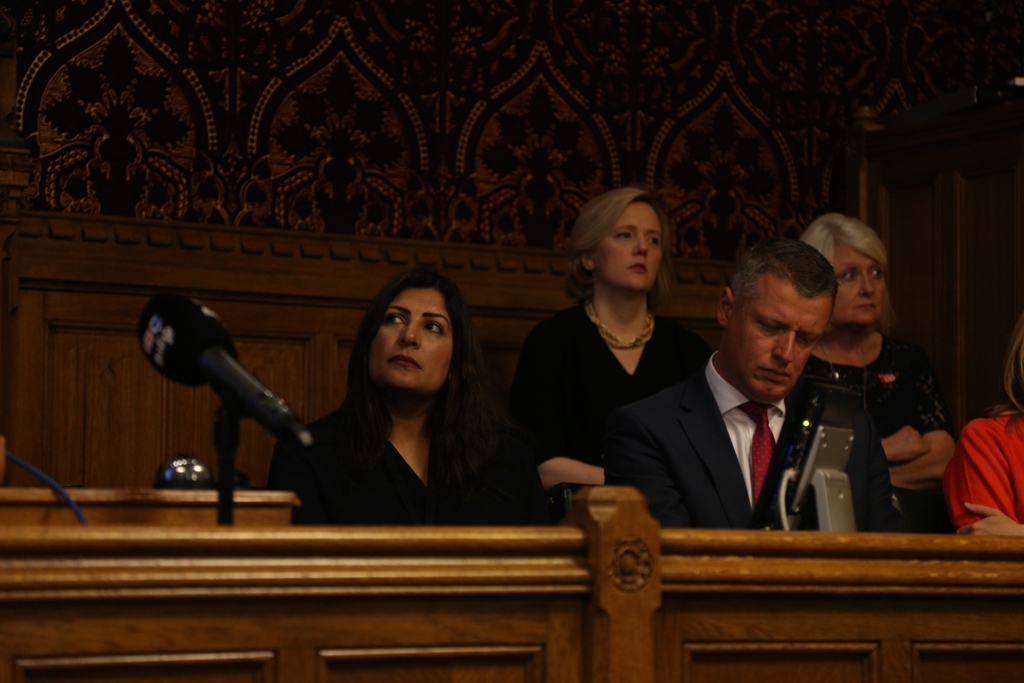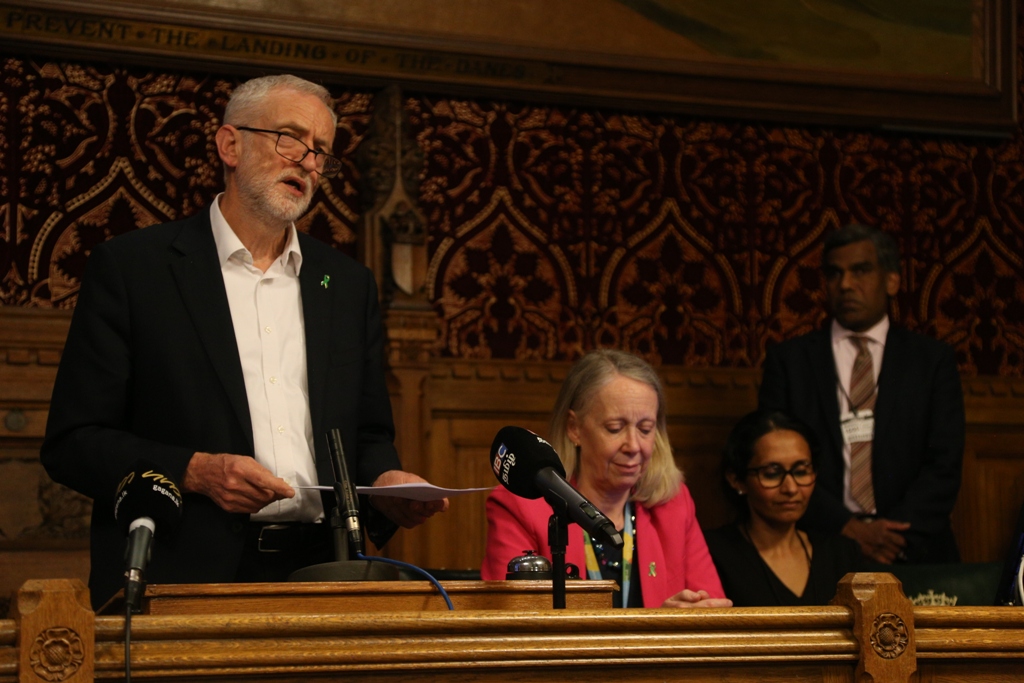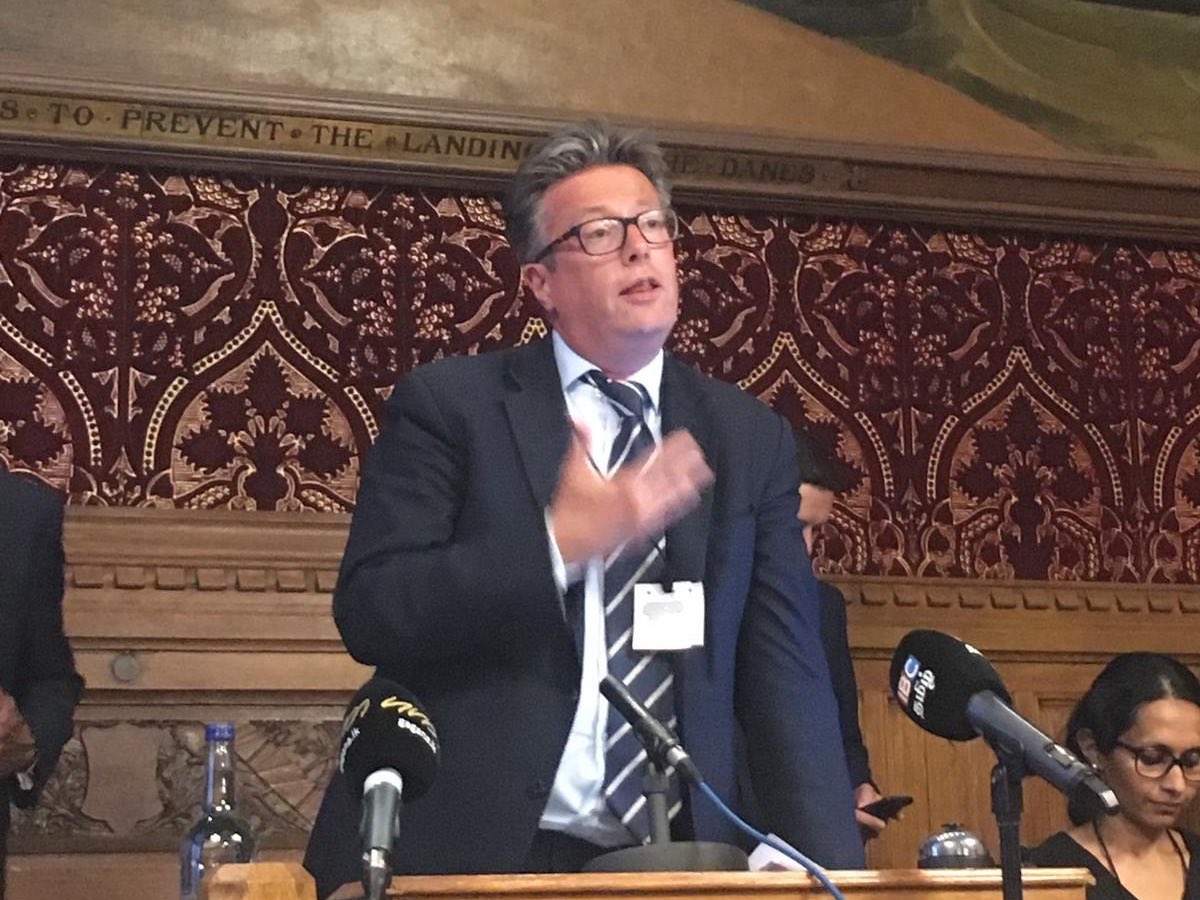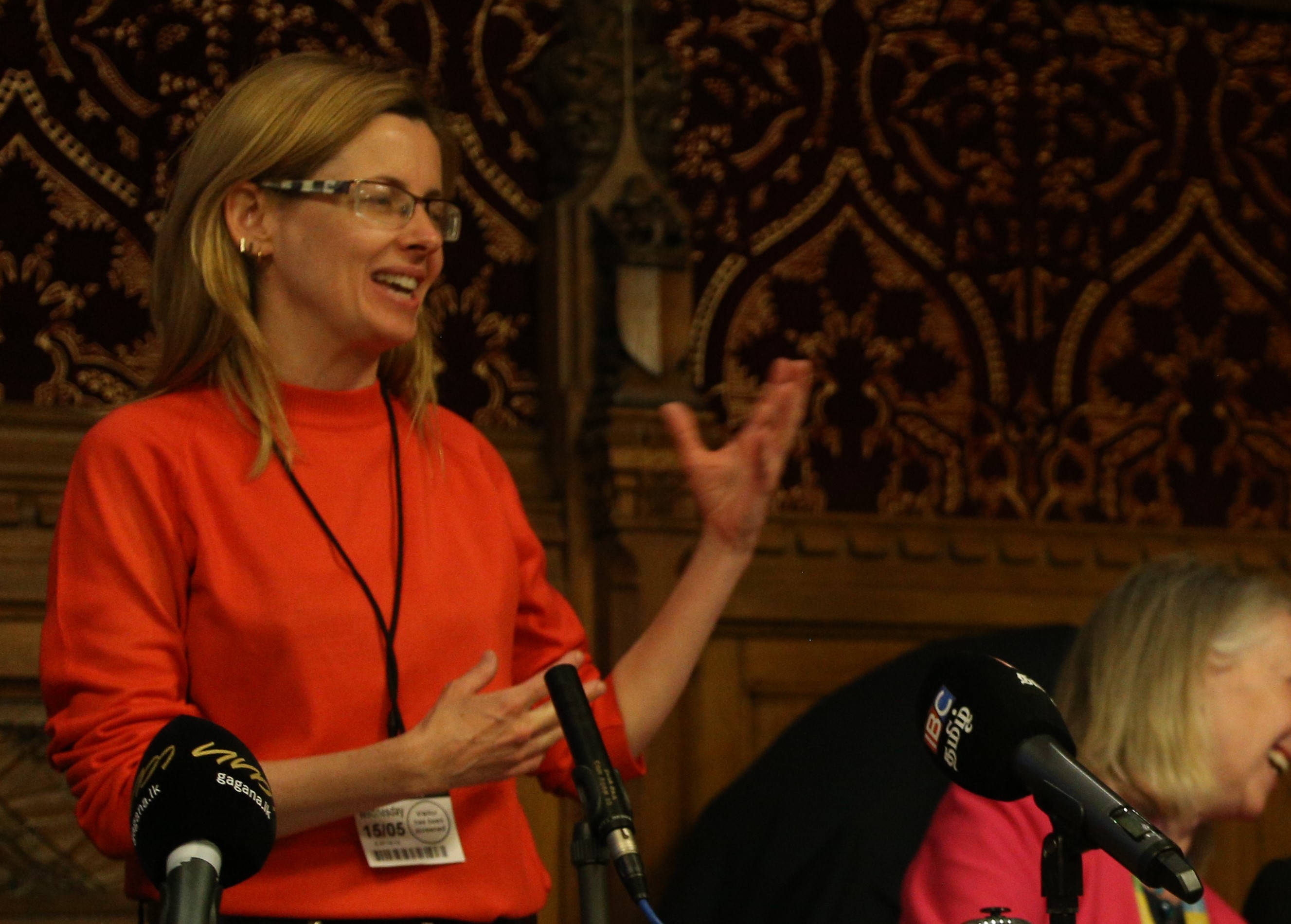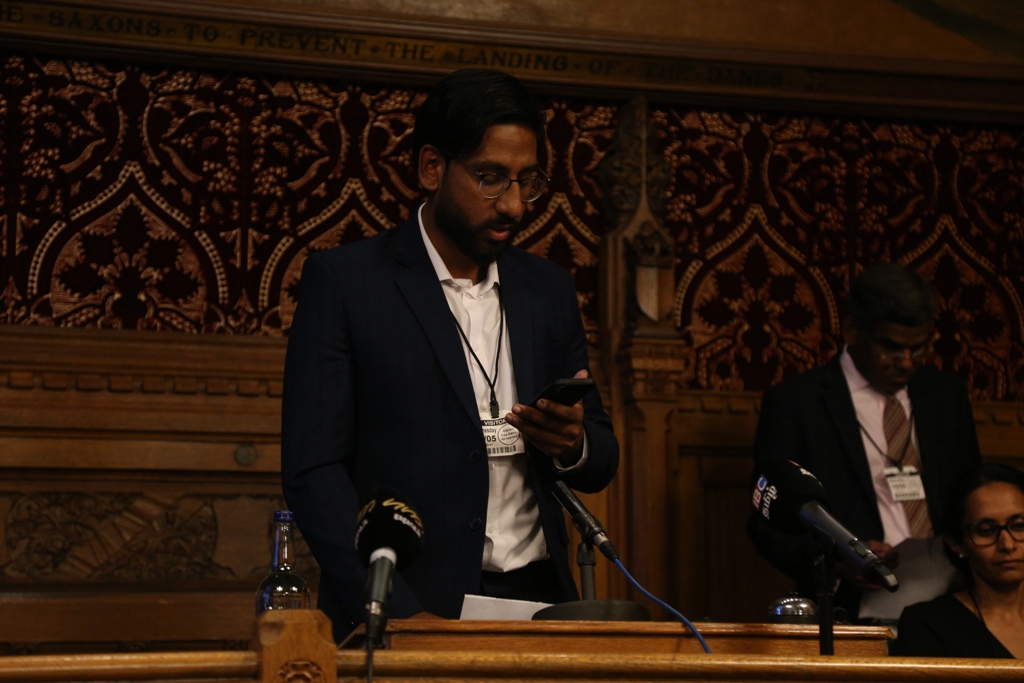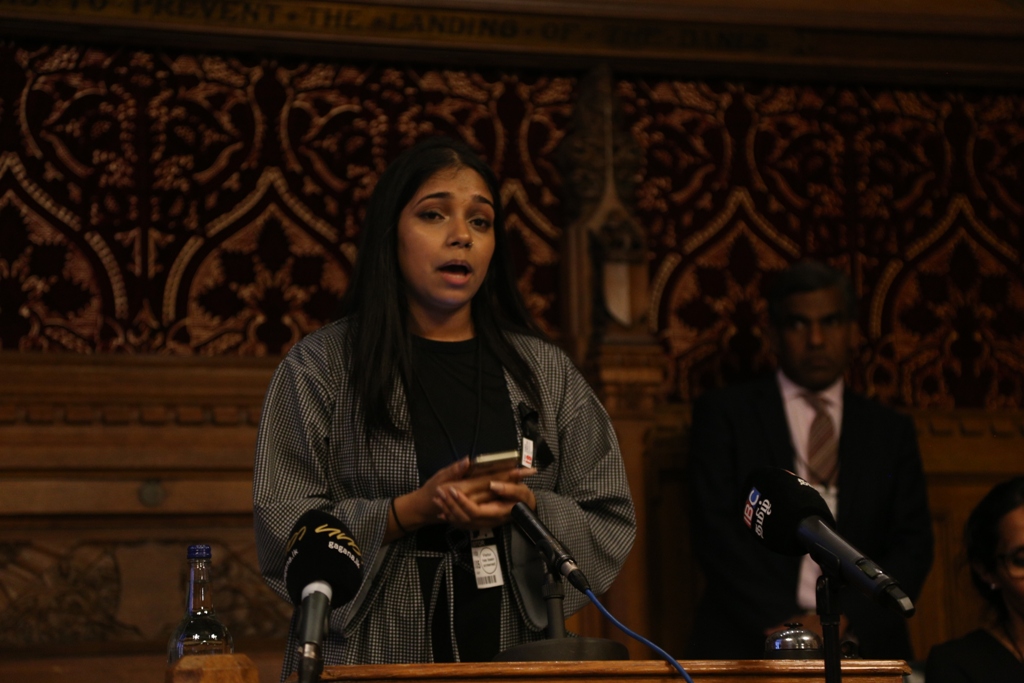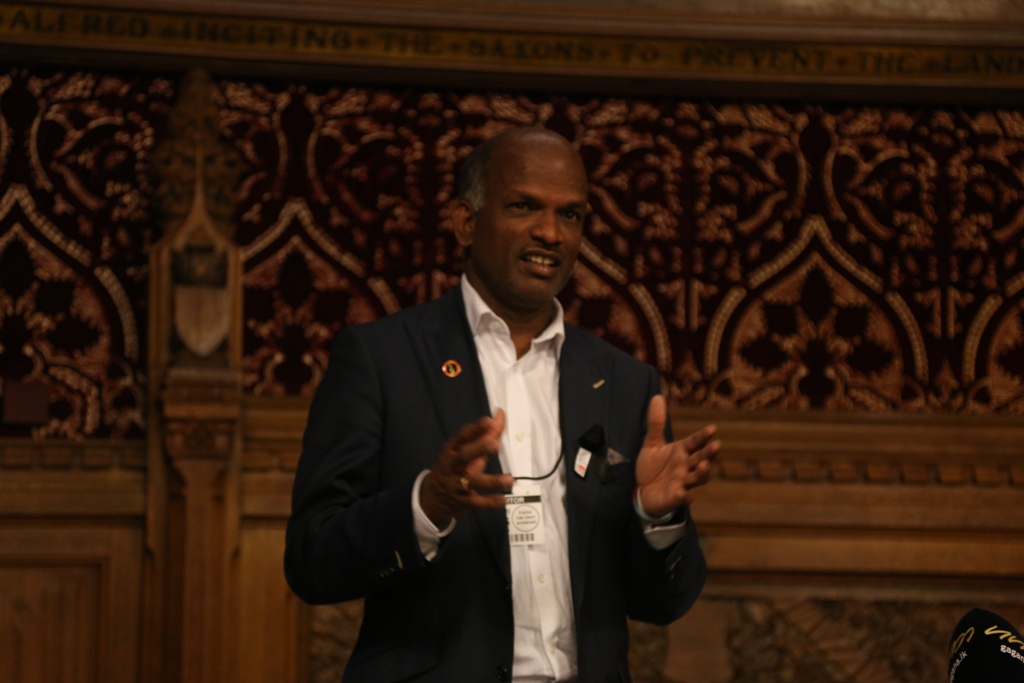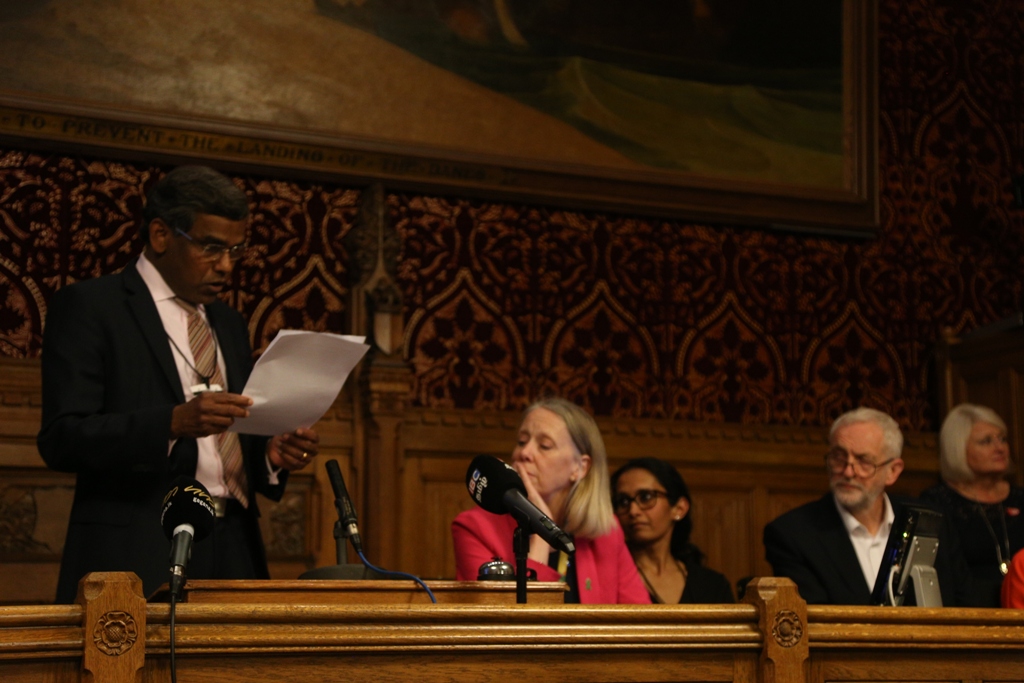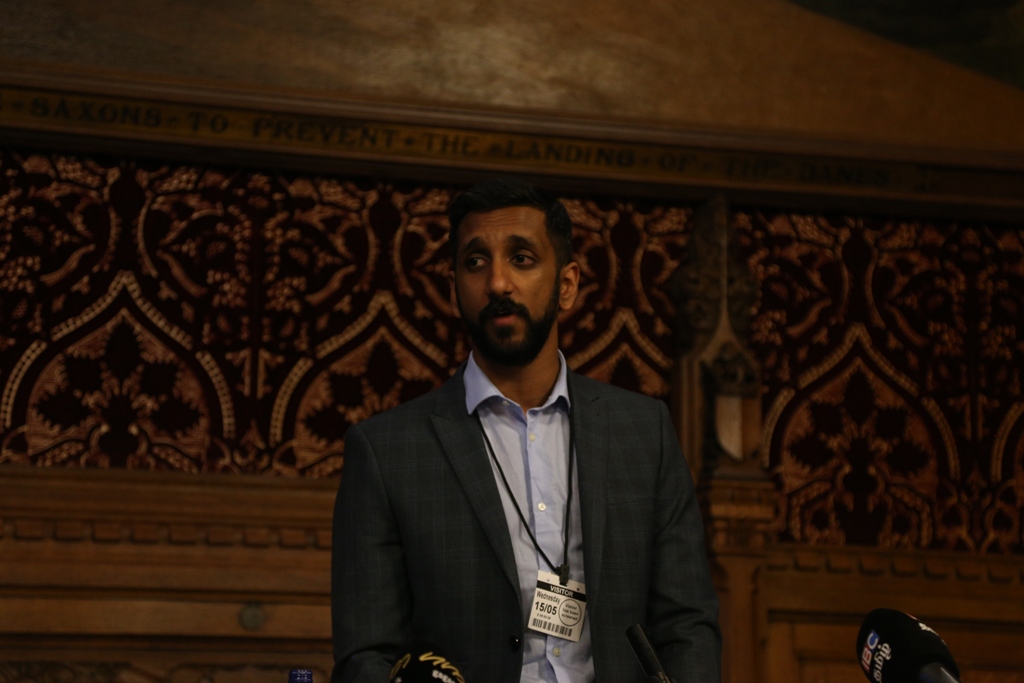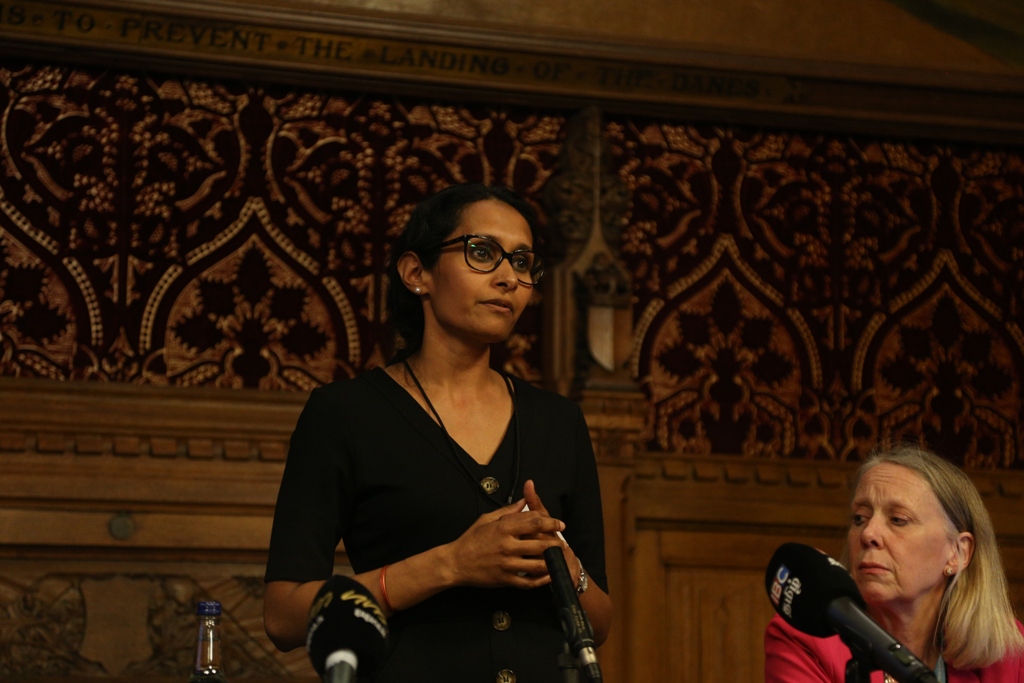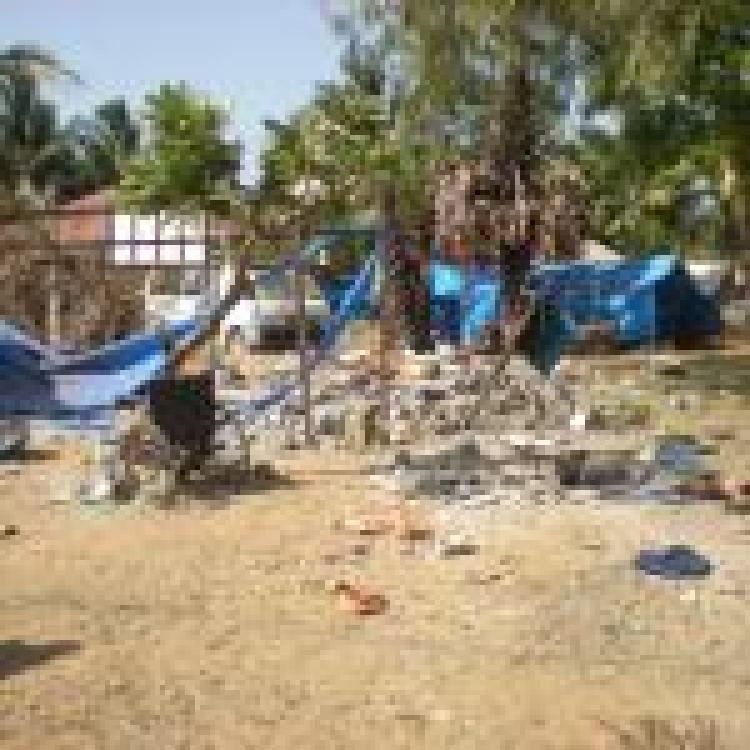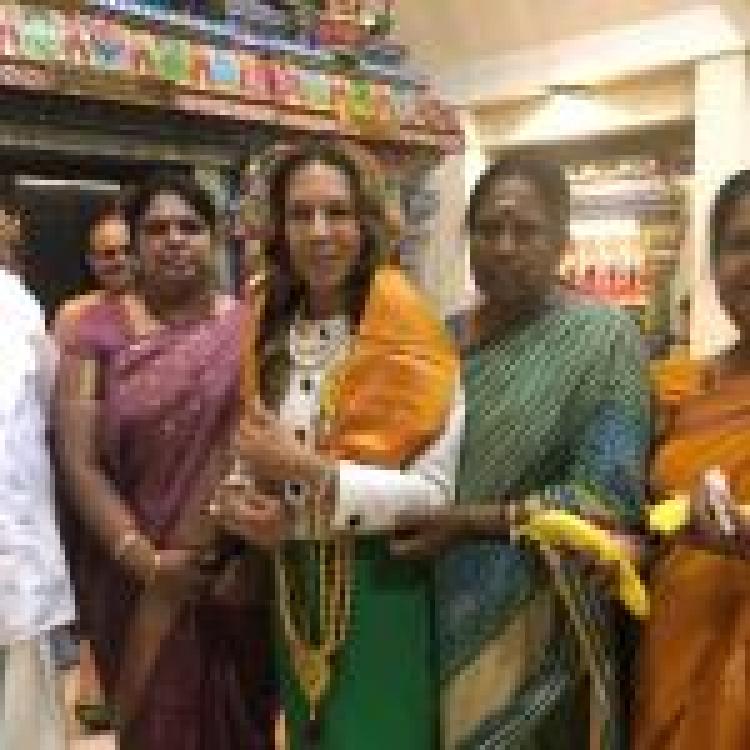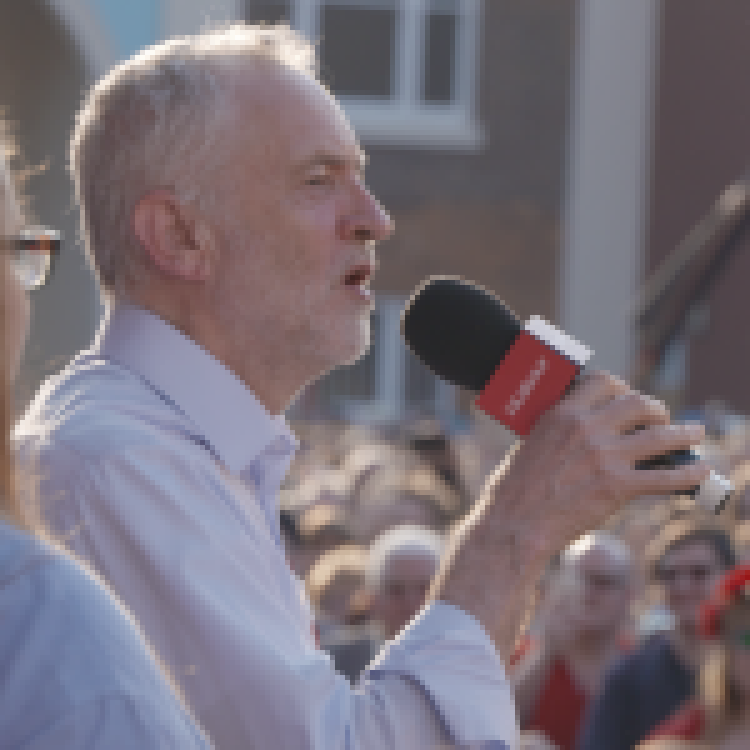A future Labour government would be committed to the causes of achieving justice and accountability for the Tamil people, as well as recognising their right to self-determination, the party’s leading figures said this week at an event marking the tenth anniversary of Mullivaikkal in Parliament.
“This is a sad occasion because we are commemorating the tenth anniversary of that terrible massacre,” said Labour leader and Leader of the Opposition Jeremy Corbyn MP.
“We need a recognition of the atrocities, an end to the ongoing human rights violations, accountability for the mass atrocities,” Mr Corbyn said adding that “a political settlement and acknowledgment of the right of self-determination of the Tamil people is crucial to a sustainable peace.”
“Human rights violations and the persecution of the Tamil people are ongoing in Sri Lanka,” he said. The ongoing use of torture as a common tactic in Sri Lanka was unacceptable, Mr Corbyn added.
A future Labour government would use diplomatic pressure and action on trade and arms sales to push for human rights, he said.
“Today we commemorate those who lost their lives at Mullivaikkal those years ago,” Mr Corbyn said. “In their memory and their honour, let’s get justice for those who have committed atrocities,” he said.
The Labour leader also condemned the Easter Sunday attacks as well as the anti-Muslim violence which followed.
Shadow chancellor John McDonnell MP spoke on the need to recognise the right to self-determination, stating [we must] “recognise what the Tamil people have faced but also what they desire for their future.”
Speaking on the danger still faced by Tamil journalists in Sri Lanka and the silencing of ‘anyone associated with the fight for freedom and justice’, Mr McDonnell said “when we [the Labour Party] go into government, we will commit to ensuring that the UK is a leading light in the fight for justice.”
Responding to criticism from the audience about the UK government’s arms sales and military support of Sri Lanka, Mr McDonnell said that the supplying of arms to and training of abusive militaries, including Sri Lanka, would cease under a Labour government.
Speaking on the need to continue pushing for justice, shadow foreign secretary Emily Thornberry MP said:
“We stand with you today in shared anger that no-one has ever been held to account for the disgraceful Mullivaikkal slaughter.”
“We can still give the victims justice. A future Labour government will demand justice for Mullivaikkal.”
“Sri Lanka can never truly rid the country of sectarian violence and terror and hatred until they face up to the violence and hatred that they themselves perpetrated on the Tamil people.”
“I stand with the Tamil community and calls for justice and accountability,” said Preet Gill MP, shadow minister for international development. “We have consistently supported the establishment of a fair and impartial tribunal to investigate war crimes and atrocities,” she said. Echoing her remarks, shadow foreign minister Liz McInnes MP said, “we need to have a full investigation and we need to start righting the wrongs and repairing the damage.”
The event was chaired by Siobhain McDonagh MP, who opened the evening with a minute’s silence. Several other Labour parliamentarians attended and made remarks in support of the Tamil cause for justice and accountability. Virendra Sharma MP said that the party’s commitment to the Tamil people was unwavering. Stephen Timms MP talked about the thousands of forcibly disappeared who remain unaccounted for, while human rights violations continue in the present.
Wes Streeting MP, a vice-chair of the All Party Parliamentary Group for Tamils noted the palpable concern among Tamils that the current security situation in Sri Lanka, following the Easter Sunday terror attacks, could be used a pretext to further clamp down on rights.
Luke Pollard MP stressed that the Labour Party must stand for truth and justice, while Stella Creasy MP said that there must be an international and independent process to investigate and prosecute war crimes and atrocities. Karen Lee MP said she had come to show solidarity with the Tamil cause and her Tamil constituents in Lincoln. “We will get the truth and we will hold the Sri Lankan government to account for it,” added Sarah Champion MP.
Patrick Lewis, a barrister at Garden Court Chambers, spoke of his extensive experience representing Tamil asylum seekers. Criticising the British Home Office for its lack of ‘humanity’ in its discounting of evidence of torture in deciding asylum cases, Mr Lewis stressed the importance of reforming the Home Office, including acknowledging the ongoing violence inflicted on Tamils in Sri Lanka. Gareth Thomas MP also spoke on British asylum policy, referring to the ‘shameful’ collaboration of the Home Office with Sri Lankan authorities which has resulted in the arrest of returned asylum seekers in Colombo.
Chief executive of Freedom From Torture Sonya Sceats emphasised that Sri Lanka’s torture apparatus did not wind down at the end of the war, and that the Sri Lankan president and his government had gone to extreme lengths to discredit torture survivors.
|
|
|
British Tamil activist Krish Sabapathy asserted that ten years after the genocide, the Tamil people would continue to remember and to resist. Student activist Vithya Nandakumar, who was 9 years old in May 2009, spoke on the enduring trauma of the genocide and the next generation’s resolve to continue the fight for justice. Tamil activist and member of the Transnational Government of Tamil Eelam (TGTE) S Yogalingam also urged the Tamil community to continue the struggle for justice and self-determination. Sen Kandiah of Tamils for Labour stressed that no progress had been made in accountabulity and said the group was calling for the Labour Party to recognise that what happened was genocide.
|
|
|
“The British government must send a message that it stands in solidarity with its Tamil people in their struggle for justice and accountability,” said Tamil Guardian co-editor Thusiyan Nandakumar, questioning the UK’s military support and engagement with Sri Lanka. “It is time we look beyond the UN Human Rights Council, and the UK and Labour Party must take the lead on that, including recognising that what happened was a genocide,” he added. Academic at City University Dr Madurika Rasaratnam also referred to Sri Lanka remaining a key beneficiary of western military aid, stating “because we have not had any accountability for the atrocities of the end of the war, the spectre of violence continues to haunt Sri Lanka again.”
|
|
|

